Waking up and reaching for your phone might be second nature to many, but how much of this is actually good? While a scroll down your social media at various intervals may seem like a good way to pass your time, there is often a thin line between a hobby and addiction. We spoke to mental health experts to understand technology addiction.
To begin with, let’s understand what technology addiction is. Dr Shambhavi Jaiman, consultant psychiatrist at Sukoon Health, Gurgaon, states, “Research defines technology addiction as the persistent and recurrent use of the internet despite negative consequences to the person using the technology.”
Addiction to technology can happen to anyone across different age groups. Let’s take a look at how technology can affect different people.
Early Childhood and Teens
There is a good chance that your child would rather play with a phone or tablet than their favourite toy. Whether they are eating, or need to be distracted, all they need is a phone playing some of their favourite videos. They might even get cranky if they do not get their daily dose of screen time, even at such a young age.
Similar symptoms are also shown by teenagers who spend a majority of their time online. “Literature states that, adolescents aged between 15 and16 years, especially young boys, are the most prone to the development of internet addiction, due to prolonged periods of time spent online,” states Dr Mehezabin Dordi, clinical psychologist, rehabilitation and sports medicine department, Sir HN Reliance Foundation Hospital, Mumbai.
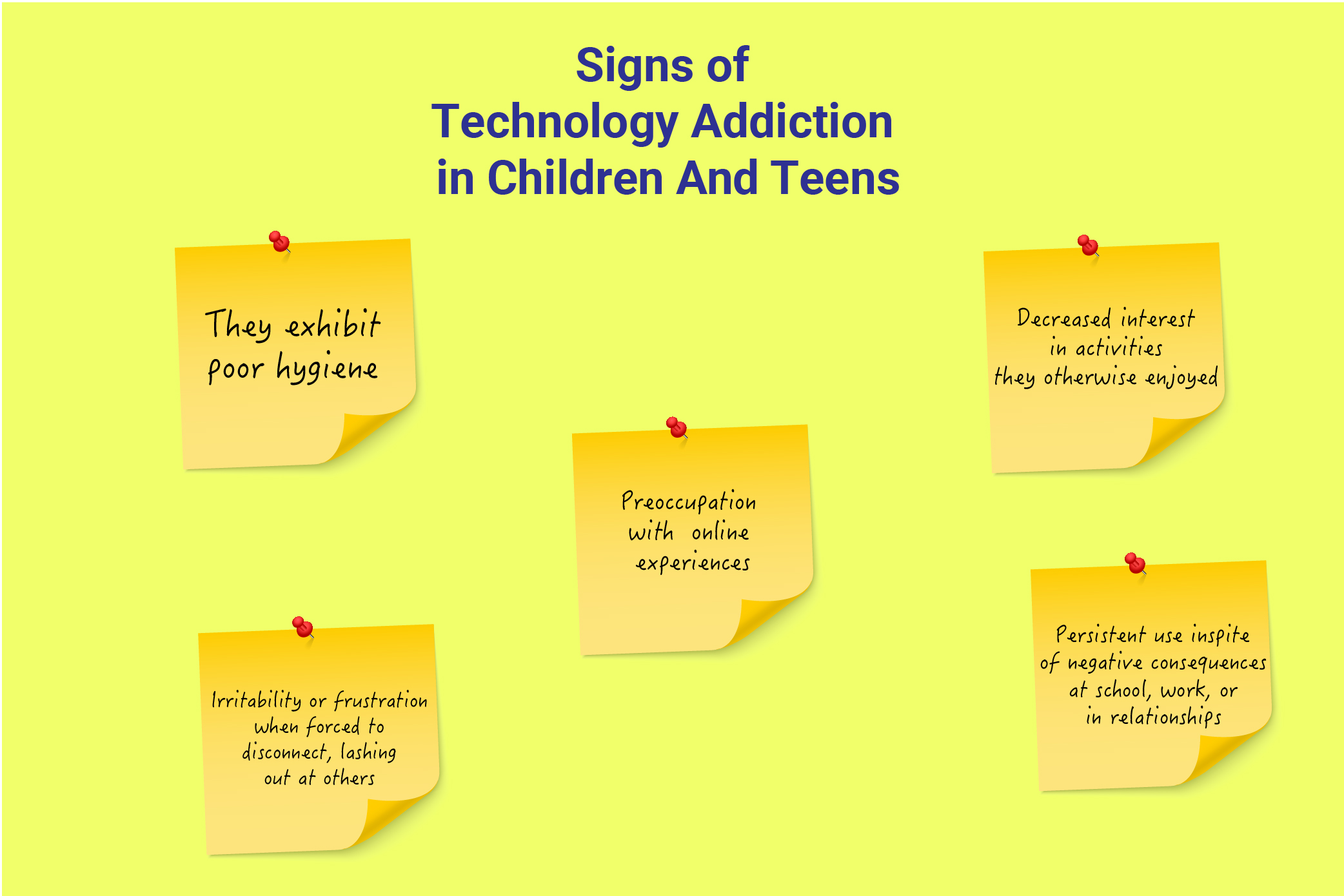
Technology addiction can have an impact on the overall development of the child, especially their mental and emotional wellbeing. Dr Dordi points, “Continued unaddressed addiction can also hamper the overall development of a child. It can lead to depression and anxiety disorders, a feeling of guilt for over or under utilising the internet, spending way too much time on the internet, the want to postpone plans or social gatherings, sudden mood changes, and memory losses where one could blank out or have brain fog.”
Children and teenagers who spend a major chunk of their time online do not indulge much in playtime or exercise, which could further hamper the development of their motor skills. Dr Dordi explains, “Since significant development like learning skills and verbal intelligence takes place during a child’s formative years, children who spend too much time on various devices, become deprived of the mental development that they need and, hence, can’t improve their cognitive skills.”
Moreover, developing social skills is imperative in childhood, and the best way for them to achieve that is to socialise with their peers. Kids addicted to technology are not as willing to play outdoors or with friends, and this can have a detrimental effect on their overall development.
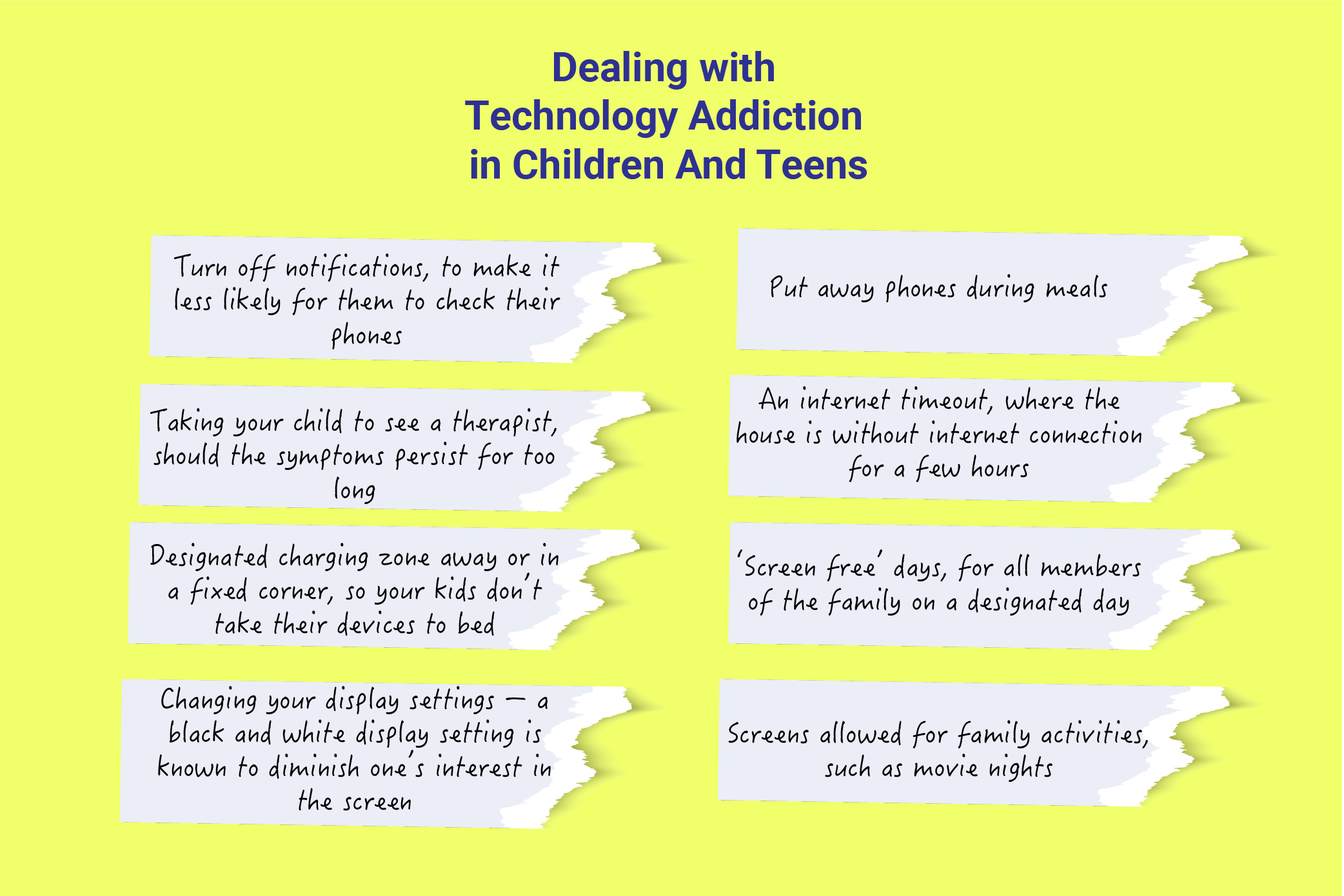
Adults
As we spend more and more time on our devices owing to work, classes, and other social networking activities, there is a fair chance that one could be predisposed to technology addiction, even as an adult.
Dr Dordi explains that internet and technology addiction can have many harmful effects people—both physical and emotional. ”What most adult don’t realise is that too much time at their devices can lead to body aches, Carpal Tunnel Syndrome (numbness and tingling in the hand and arm caused by a pinched nerve in the wrist), insomnia, vision problems, and even weight gain/loss. The emotional effects may include depression, dishonesty, anxiety, social isolation, aggression, and mood swings.”
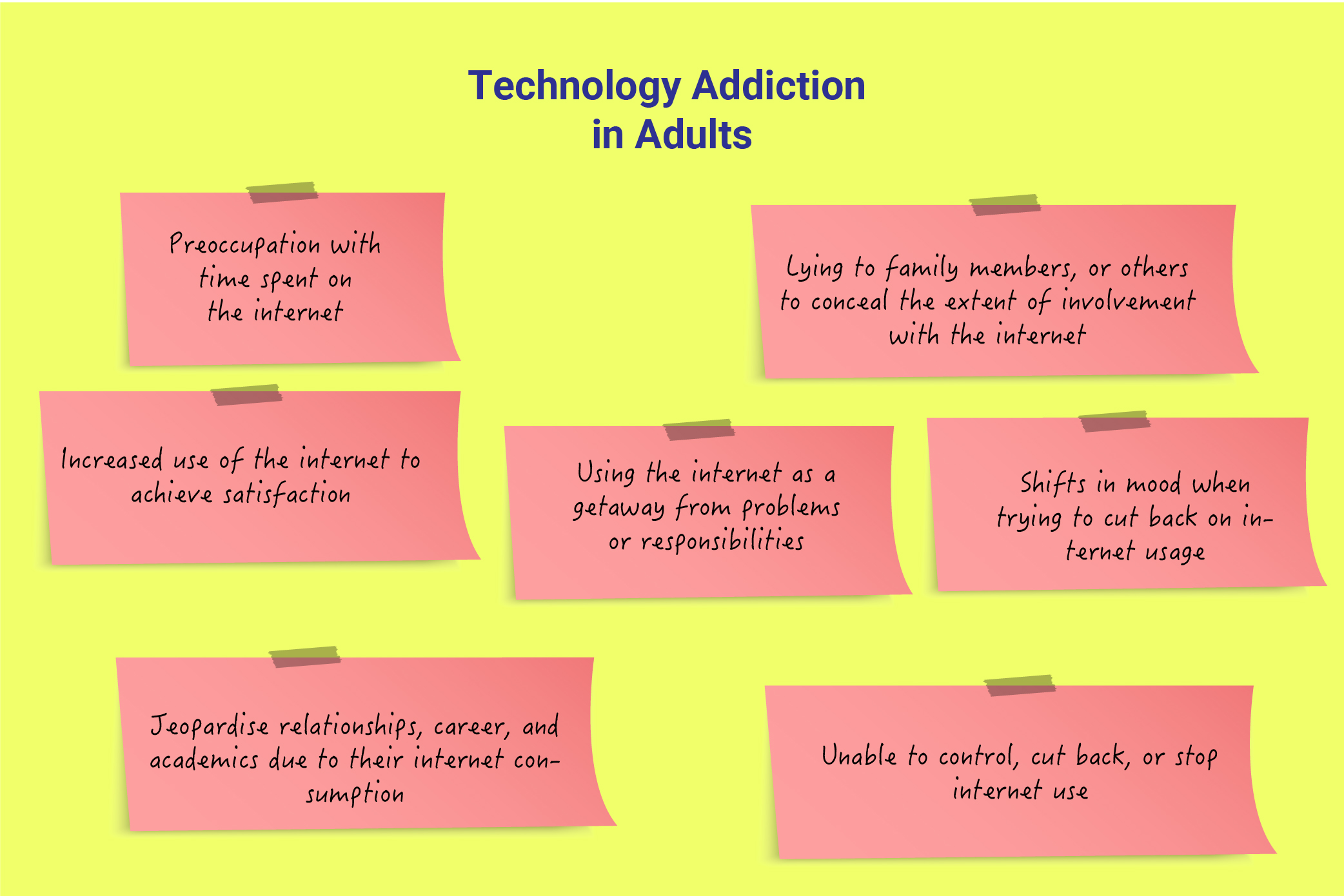
It is imperative to understand the right time to reach out for help if you feel you might be a bit too dependent on technology, or if you feel that your incessant internet usage is causing disruptions in your life. “There is no one specific treatment that should be used to address an internet addiction. Depending on the severity of the addiction and the behaviours of the individual, different types of treatments can be effective. Therapy is generally incorporated into the treatment of addiction along with any co-occurring disorders that may be present. For example, anxiety, depression, and/or obsessive-compulsive disorder. In some cases, medication may be used to manage symptoms of these underlying mental illnesses or to control intrusive thoughts about going online if other treatment options are not effective,” advises Dr Dordi.
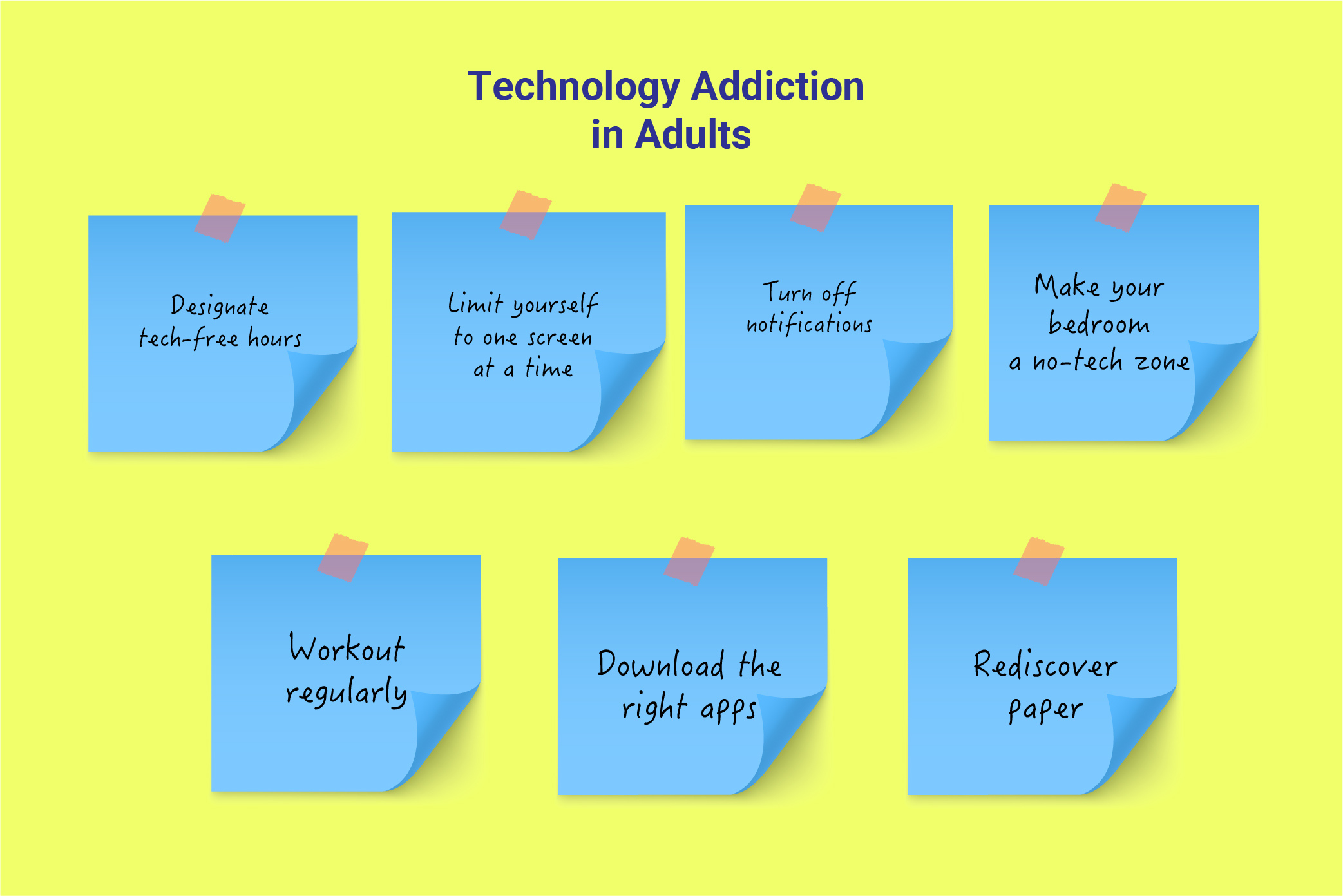
Senior Citizens
How many times have you received those over-the-top ‘Good Morning’ messages from your elderly relatives on every messaging app? The conspiracy theories, and circulating any and every message without checking their authenticity and even relevance, is a rather common occurrence. Due to increased time at hand and decreased social activities, senior citizens are also prone to technology addiction. “The signs of recognising technology addiction among the elderly are pretty similar to the ones seen in adults. Some of these signs, however, often go unnoticed due to the increased availability of time owing to retirement,” explains Dr Dordi. Dr Jaiman concurs. “In fact, an excessive use of technology among senior citizens may lead to other mental health issues such as depression, anxiety disorders,” she says.
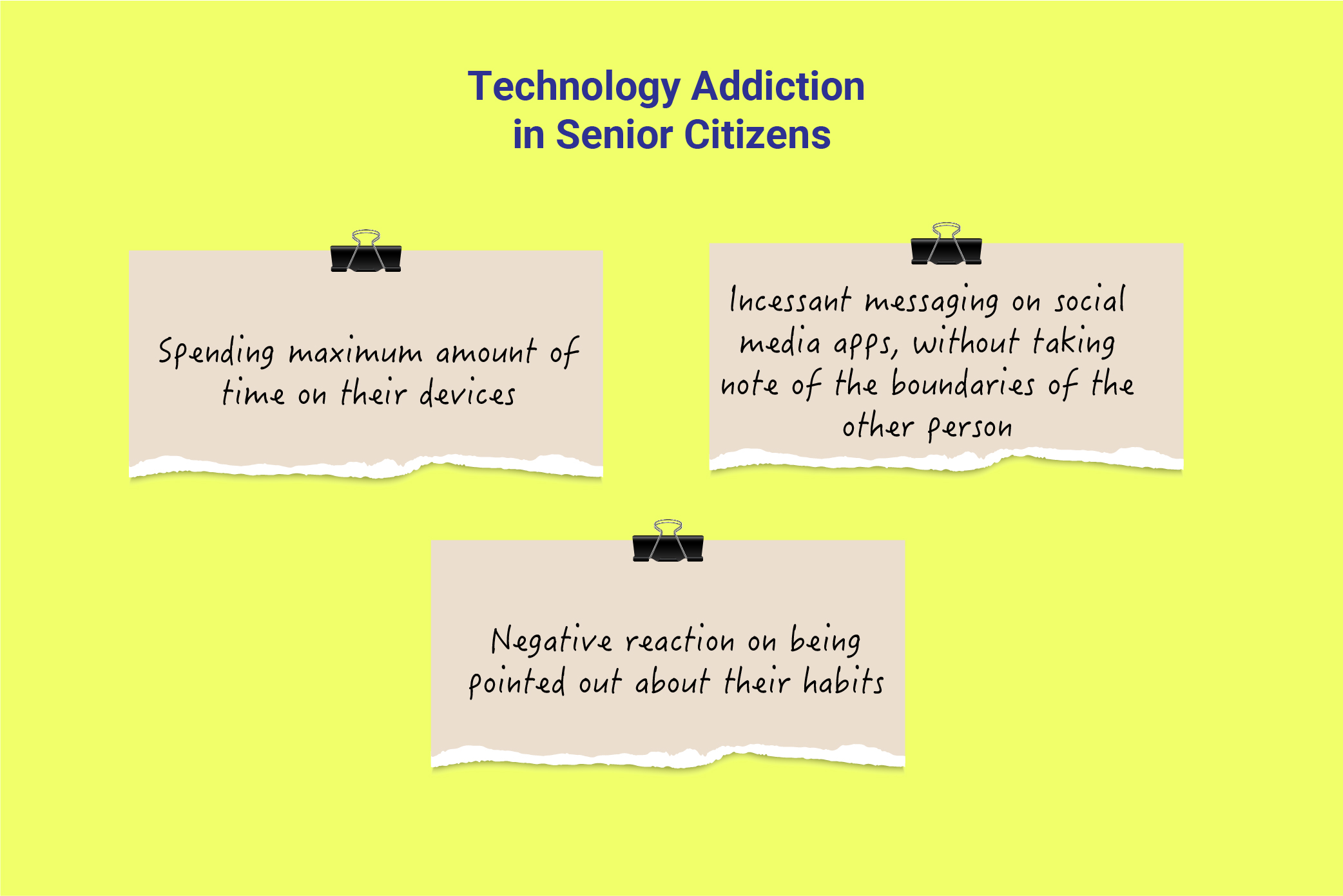
When it comes to dealing with technology addiction in senior citizens, apart from following the basic ruled provided to adults, it is important to provide them with proper psychoeducation. “Checking for other underlying emotional or psychological issues is also important. Emotional distresses such as loneliness, boredom or depression can also be the reasons why senior citizens resort to using the internet. Our brain is wired to release a pleasurable shot of dopamine when you find something novel and exciting, and the internet offers many exciting things that can lift their spirits at the click of a button,” says Dr Dordi.
While technology addiction is a fairly common issue across age groups, and with the current trend of digitisation, it is easy to be dependent on your devices for even the simplest of tasks. However, one should be mindful about how much time they spend on the internet, and seek help if they feel they should.